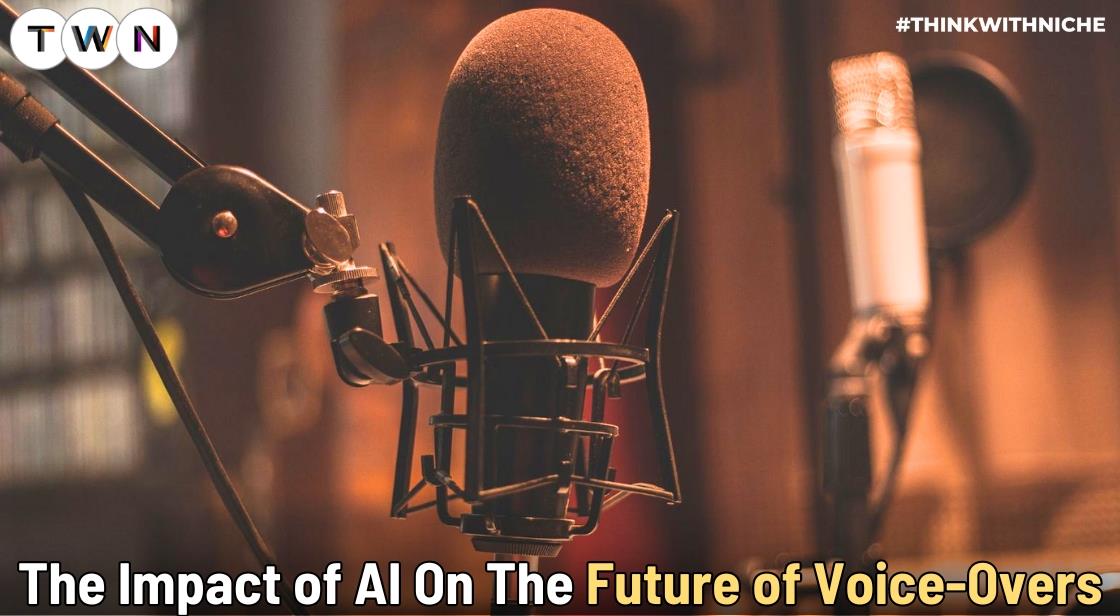The Impact of AI on the Future of Voice-Overs

Blog Post
The rise of artificial intelligence (AI) is transforming various industries, and the voice-over profession is no exception. Once a niche art form, voice-over work requires a unique blend of talent, skill, and timing to bring words to life. Iconic voices like Don LaFontaine, known as the "movie trailer guy," have defined the industry with their unforgettable tones.
However, with the rapid advancements in AI, many are beginning to wonder whether the voice-over industry is on the verge of a major shift. AI-generated voice-overs are becoming increasingly common, especially in content creation for platforms like TikTok and YouTube.
But does this mean the end of human voice-over artists, or is there still a place for them in an AI-driven world?
This blog explores the impact AI is having on the voice-over industry, weighing the benefits of automation against the irreplaceable qualities of the human touch.
The Impact of AI on the Future of Voice-Overs
Being a voice-over artist is an art. It’s a skill everyone will believe that they can do, but only a select few can.
Indeed, you might have thought to yourself at one point, “How hard can it be to talk over or narrate something?” If you haven’t ever tried it, then you’ll have no idea how skilled it is.
If you’ve ever watched film trailers - which it is almost impossible not to have - then you’ll know of one of the most iconic voices in the gig. Don LaFontaine was the “movie trailer guy” according to some, with the artist being credited with the “In a world…” phrase because of his deep, dulcet tones.
However, is the age of the voice-over profession dying? Is it one that is coming to an end? As technology develops and new advancements are being experienced, there’s potential of this being the case…
How can AI impact voice-over artists?
Artificial intelligence is everywhere. Although it’s impact feels relatively new, it’s been around for ages. It’s just continuing to develop at a rapid speed.
Generative AI is one form of the technology that is among the forerunners of the industry, especially when it comes to content creation and providing answers to questions. You may have noticed there are various instances whereby it has been used, including as a replacement for voice-over artists.
If you’re a user of a video platform, like TikTok or YouTube, it’s almost guaranteed that you’ll have seen an AI voice-over be used. More and more content creators and uploaders are using an AI voice over generator for their videos. The tools available allow them to use recorded speech, which can then be used to immerse and capture the audience.
The use of AI voice-overs has meant content has become more accessible to users. They can speak to the audience, allowing them to understand what the video is about. At the same time, they can tell the story and grip the audience with the way the words are told. Voice-over artists have a unique power within their voices to capture attention. AI generators have been able to replicate this, which may be concerning for professionals who work in the field.
Also Read: How Companies Can Leverage AI for Sustainability
Benefits of using an AI voice-over generator?
As with most forms of AI, the processes of acquiring the desired end result has been simplified. This is why there have been many who have decided to go down this route.
Among the benefits that can be obtained are:
● No need for the perfect conditions to record lines.
● Can be a lot quicker than having a real voice-over artist.
● Can be a lot cheaper.
● Provides flexibility as the same script can be translated and used in multiple languages with the same voice-over.
● Edits can be made more simpler.
Will there still be a place for humans?
As eluded to, there are several concerns about the power of AI. Many have started to fear that it could take their jobs and cause them to look for a new profession. Indeed, with the benefits that are available when using AI generators, it’s not hard to understand why these concerns are held.
However, there are some reasons why it’s likely that the profession will continue to remain (for now, at least):
● Keeps a human touch.
● Delivery of the message can be personalized.
● Any message can be told in the way that is intended with a human as precision can be achieved.
● For some, using a real human voice can be an ethical win. There is no uncertainities about how the voice was obtained, how it was created, or whether it can be used as a deep-fake.
AI is bound to have an impact
It’s impossible not to believe that AI will have an impact on the future of voice-overs. It is possible to see it already doing so, with the various options that creators are using for their content.
However, we can suggest that there will always be a market for human voice-over artists. These individuals can provide the human touch that the technology isn’t yet able to (although it might not be long before it does). They can also make the required changes or provide the exact tones that are wanted, as they can be more precise.
You May Like
EDITOR’S CHOICE












